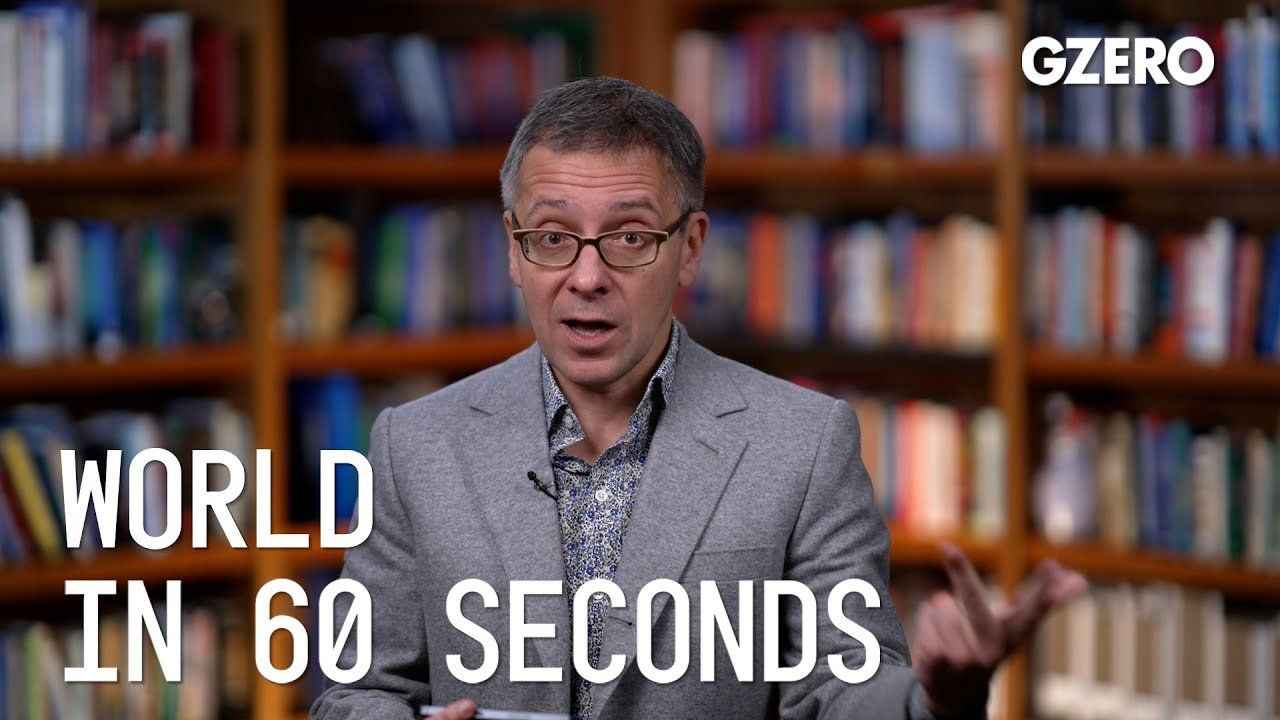Ian Bremmer shares his insights on global politics this week on World In :60.
Would a Trump indictment ruin his re-election efforts or reignite his base?
I think everyone out there on the Republican side thinks that an indictment makes it more likely that Trump gets the nomination. When even Mike Pence, who at this point is trying to really differentiate himself from Trump, is out there saying that an indictment would be politically motivated. It means that everyone understands that they cannot back away from Trump on this issue. Gives him more space, gives him more headlines, helps fuel the politics of grievance, makes him more likely to get the nomination.
How does the ICC arrest warrant change things for Putin?
That's kind of connected to that previous question. Well, he's a war criminal, unlike Trump, but also Russia, China, the United States, none of those three countries actually recognize the ICC as a legitimate body, so therefore, it does undermine the ability of the Americans to say, "You see? You see? You should take this guy and you should arrest him," because the Americans wouldn't tolerate that for their own people. But it obviously is enormously embarrassing in terms of Putin's inability and his regime's inability to reengage with the advanced industrial democracies in the world. Also sends a very clear message from China that this is who they're willing to embrace and embrace very publicly. Big, big divide on the global stage on this issue. Only going to get worse.
What new opportunities are there with South Korea-Japan rapprochement?
It's a big deal. If you look at the G-20, this is the relationship that has been incredibly dysfunctional among advanced industrial democracies, and it now has been patched up. That means that Japanese export controls on semiconductors and inputs for South Korea, no longer there, means that they are reengaging their shuttle diplomacy, means they're reengaging on military and intelligence cooperation, makes it more likely that the South Koreans might be invited to join the Quad, makes it more likely that Japan and South Korea together could join AUKUS. That's really important for America's two most significant military allies in Asia, and going forward, something that the Chinese are going to be quite concerned about.
- What We're Watching: Putin in Mariupol, Israeli-Palestinian talks ... ›
- Trump’s weapon of mass (GOP) destruction ›
- What We're Watching: Putin's ICC defiance, Israeli-Palestinian talks ... ›
- Will Japan grow its population before it's too late? ›
- What We're Watching: Drone drama, DeSantis vs. Ukraine, Japan ... ›
- Trump's indictment is problematic - GZERO Media ›
- Trump indicted on federal charges - GZERO Media ›
- Timing on Trump's federal trial has huge implications - GZERO Media ›
- Why you should care about the legal case against the Trump Organization - GZERO Media ›
- Ian Explains: Has a US president ever been arrested before Trump? - GZERO Media ›
More For You
Tune in on Saturday, February 14th at 12pm ET/6pm CET for the live premiere of our Global Stage from the 2026 Munich Security Conference, where our panel of experts takes aim at the latest global security challenges.
Most Popular
In this Quick Take, Ian Bremmer weighs in on the politicization of the Olympics after comments by Team USA freestyle skier Hunter Hess sparked backlash about patriotism and national representation.
In July 2024, Keir Starmer won the United Kingdom’s election in a landslide. It has been downhill ever since, with Starmer’s premiership sullied by economic stagnation, intraparty fighting, and a lack of vision for the country.
